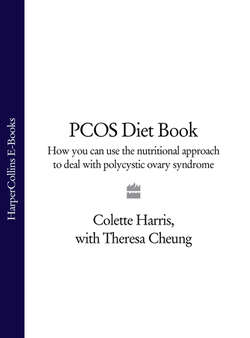Читать книгу PCOS Diet Book: How you can use the nutritional approach to deal with polycystic ovary syndrome - Theresa Cheung - Страница 51
Why?
ОглавлениеCholesterol is a fatty, wax-like substance produced by stress, biochemical and hormonal reactions and food, primarily in your liver but also in your intestines and other cells within your body.
Cholesterol isn’t all bad news. It plays an essential role in bodily processes including the production of sex hormones such as oestrogen and progesterone. Cholesterol, as with other blood fats, only creates a problem when you have too much of it. Too much cholesterol can promote the production of fatty plaque which can clog up your arteries. If this happens, the blood flow is interrupted and this could lead to a heart attack or stroke. Blocked arteries also cause circulation problems, numbness and pain in your feet and hands.
Nutritionally you need to keep the risk of fatty plaque-blockage as low as possible. You can do this by eating foods which stimulate the production of ‘good’ cholesterol (high-density lipoprotein – HDL) and avoiding foods which stimulate ‘bad’ cholesterol (low-density lipoprotein – LDL). HDL carries excess amounts of LDL back to your intestines where it is excreted. It doesn’t matter how much HDL you have in your blood – the thing to watch out for is raised LDL.
You can encourage your body to excrete LDL by taking in more beneficial foods. In addition, you can ensure that your diet contains plenty of the nutrients that prevent LDL from forming deposits in your blood vessels.
The Pill
It is important to point out that the contraceptive pill, the most common medicine for PCOS, lowers HDL and increases LDL levels. If you have PCOS and have been or are on the contraceptive pill, it is crucial that you check your LDL levels regularly with your doctor and pay attention to your diet.
Controlling cholesterol is vital for everyone, and especially for women with PCOS in order to protect against heart disease, especially as low levels of good cholesterol and increased levels of bad cholesterol are seen in women with PCOS, particularly those with insulin problems. This situation is associated with the risk of developing heart disease and diabetes.2 It is estimated that women with PCOS have a 7-fold increased risk of having a heart attack when compared to the general population.3
